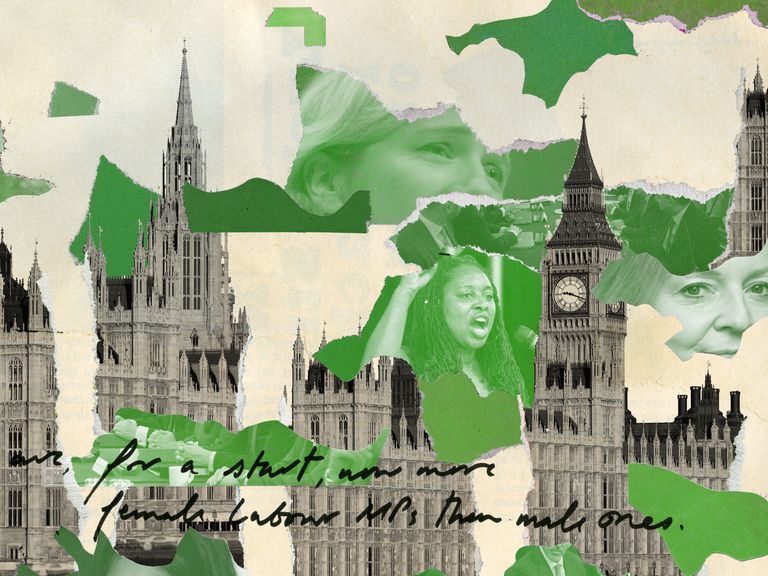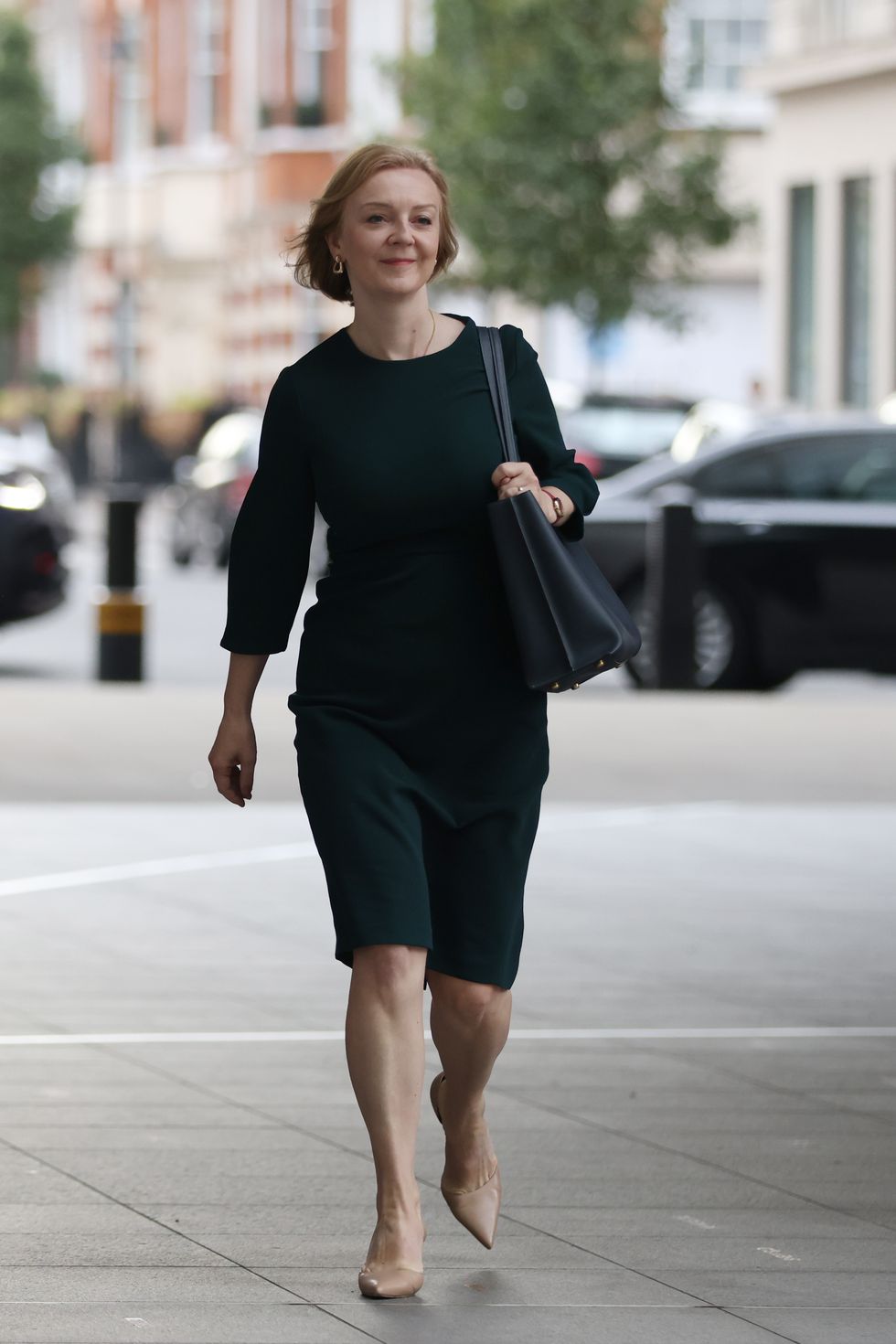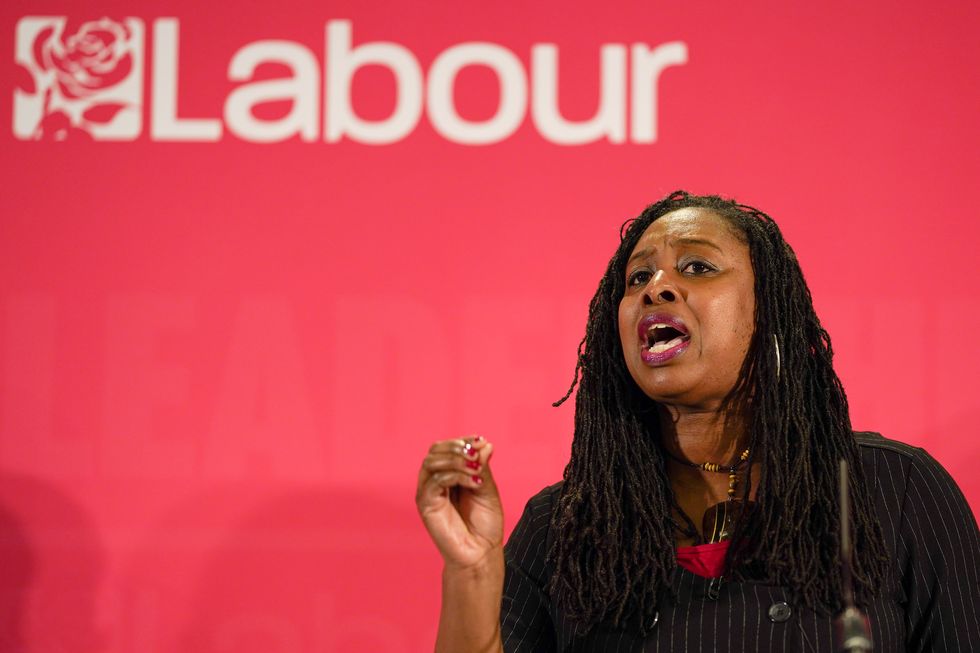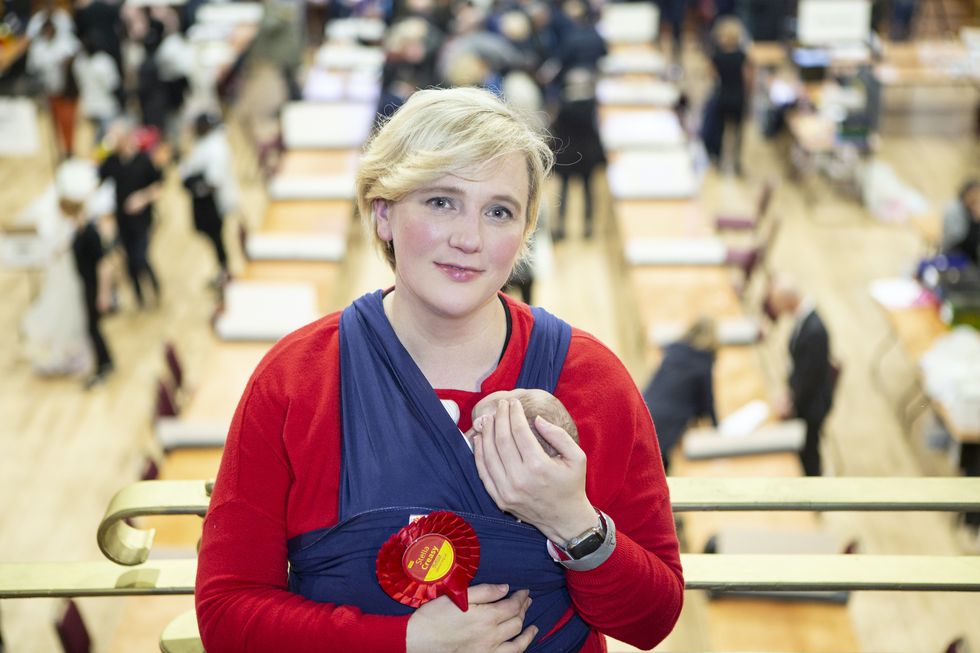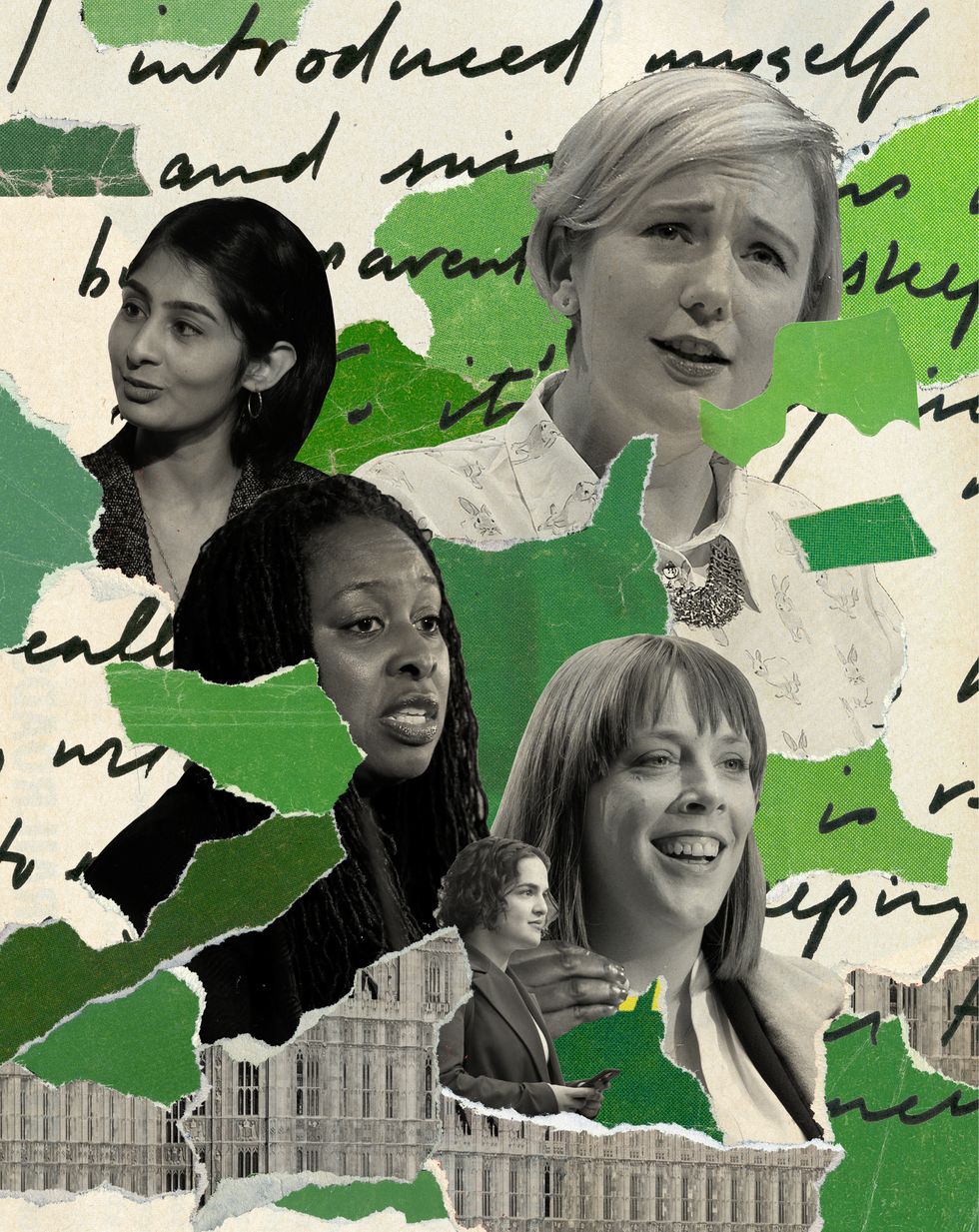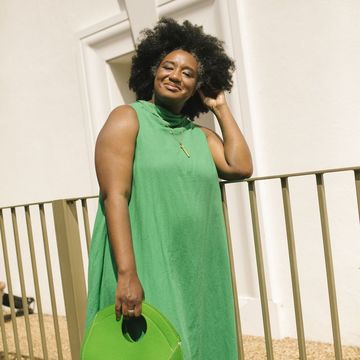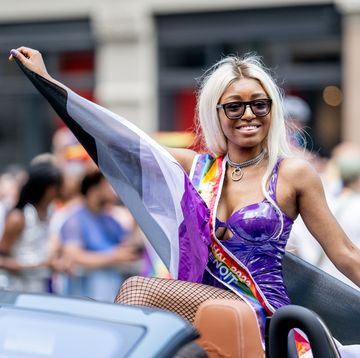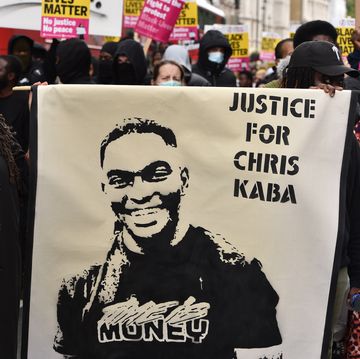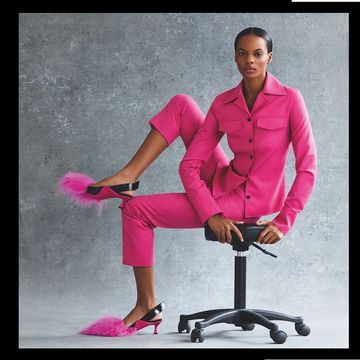Do you remember the world of five years ago? Today, 2017 feels like a different era in British politics: Theresa May was prime minister, the country was still shell shocked by the Brexit vote, the Labour Party was at war with itself, and global pandemics were the stuff of horror films and history books. It was also the year the #MeToo scandal broke, disrupting the worlds of Hollywood, music, fashion and, yes, politics. Story after story made the front pages – allegations about MPs who were accused of sexually assaulting, abusing and bullying young men and women. Staffers, journalists and parliamentarians spoke up about how hard it was to work in politics; to be patronised, not believed, and never feel entirely safe.
I remember it well, because I was one of those women. I’d been a political journalist for just over two years by that point, and had already witnessed enough incidents and heard enough rumours to feel irate more or less all the time. We wrote articles and the powers that be made promises.
This wave of anger had been about the mistreatment of women in politics, but also about what it represented. Parliament is where laws are made; how can MPs pretend to run the country competently if they cannot even get their own house in order? It isn’t just any workplace. If Britain wants to be an inclusive, diverse and thriving country, its elected representatives cannot operate like an old boys’ club.
Five years ago, we said Westminster had to change, and we were told it would. Sadly, it’s not clear that much progress has been made in the intervening years.
‘There have been some awful sexual-related scandals and allegations involving MPs in the last few months,’ says Conservative MP Michelle Donelan, who served as a minister in the department of education and – very briefly – as secretary of state for education during Boris Johnson’s chaotic demise. ‘The overwhelming majority of MPs are just focused on service, but it really does worry me how these incidents may reduce faith in democracy and politicians.’
She has a point: since last year, there has been no shortage of political men behaving badly. In late 2021, Conservative MP Owen Paterson left the Commons following a sleaze scandal, and his former colleague Rob Roberts was suspended from the party for sexually harassing a member of his staff.
In May this year, two by-elections were held, following Imran Ahmad Khan’s conviction for sexually assaulting a 15-year-old boy, and Neil Parish’s admission that he had watched pornography in the chamber of the House of Commons. Elsewhere, fellow Conservative David Warburton lost the whip after being accused of sexual harassment by several women, and SNP MP Patrick Grady left his own party following allegations that he’d made an unwanted sexual advance to an aide.
More recently, Chris Pincher, the deputy Conservative chief whip – a role that involves overseeing MPs’ behaviour – resigned after allegations that he drunkenly groped two men in a members’ club, triggering a sequence of events that ultimately led to Boris Johnson resigning as PM, when it emerged that Johnson had been aware of previous allegations of sexual misconduct by Pincher, but gave him a job anyway.
And these are only a selection of the incidents that have occurred in under a year; detailing them all would take the rest of the page. To keep it short: the British government managed to collapse in on itself in an entirely self-inflicted way, almost entirely due to the incompetence and misbehaviour of men.
More widely, Westminster remains a world in which men behave appallingly, and everyone else often feels like an afterthought. ‘It’s really difficult being a young woman here,’ says Alex Davies-Jones, a Labour MP elected in 2019. ‘You’re surrounded by men all the time; it is a really lonely place.’ The 33-year-old, currently a shadow culture minister, is also struggling to juggle her job and motherhood. ‘My son was only eight months old when I got elected; I was still breastfeeding. It’s really hard at the minute; he’s transitioning from nursery to reception, so I’m missing quite a large proportion of his life.’
What is especially frustrating is that, not so long ago, there were provisions in place to help MPs who were young parents. During the pandemic, the ‘hybrid Parliament’, as it became known, allowed MPs to participate in debates via videolink and to vote electronically.
In those months, Davies-Jones was able to have her child in London with her: ‘It was brilliant, being able to get home in time for a bedtime story.’ With parliamentary proceedings now solely happening in person again, her son stays in Wales when she is working in SW1, which is often five nights a week.
It has also been tough for MPs unable to attend Parliament for other reasons. ‘While I have been recovering from breast cancer, I have been unable to contribute or vote by proxy,’ said fellow Labour MP Dawn Butler. ‘If we could also vote electronically, that would cut down on late nights, which often sees the Parliament terraces filled with heavy drinking.’
It is an odd situation to be in: Parliament found a more inclusive way to function, then decided to discard it without a second thought. Some noise was made by MPs in the opposition, but the government refused to budge, and the topic is now rarely brought up.
‘I was talking to some Tory female MPs at an event, and they were saying, “Of course, we preferred the flexibility that we had when we could vote remotely, but we can’t say that because that’s not the accepted thing.” The implication is that they’re trying to not work hard,’ said Hannah White, the deputy director of the Institute for Government. ‘People don’t feel they can even articulate the fact that they valued it when they had it.’
Pressure – perceived or otherwise – to conform to an expected line obviously distorts behaviour within government. ‘The fact that none of the MPs who saw Neil Parish watching porn were willing to go on the record about it just demonstrates how little progress really has been made,’ said White.
Frustrating as it is, perhaps they were right not to speak up publicly: after the Conservatives lost the ensuing by-election triggered by Parish’s resignation, one male MP told a newspaper that the women who’d originally reported him should ‘feel like a turd in the swimming pool’. The message is clear: if you are a woman in politics and want your career to progress, you should not stick your head above the parapet.
Just ask Stella Creasy. For the past three years, the Labour MP has been fighting parliamentary authorities to implement a proper policy on maternity leave and cover for MPs, with mixed results. When her first child was born in 2019, she succeeded in appointing a locum MP – the first and last of its kind so far – who covered her constituency work in Walthamstow and lobbied ministers on behalf of the people Creasy was elected to represent.
The experience was not repeated when her second child was born in 2021, and though she does not regret fighting to try and improve conditions for mothers in Parliament, she isn’t coy about how tough the fight has been.
‘Even just having the conversation and talking to other women – because I’m not the first woman to come forward and say, “Well, hang on a minute, this is disproportionately affecting women” – you’re seen as problematic, difficult, wanting special treatment,’ she says.
‘The abuse I’ve had about self-promotion – one of my colleagues told me that I was using the fact I’ve had miscarriages to get myself on telly, that sort of thing… I don’t want another woman to face that.’
Creasy’s is both a valiant effort and one that is sorely needed. As the new generations of Westminster women can attest, bad behaviour isn’t a preserve of the old guard that will die out organically if we’re just patient enough.
‘I do feel I’m not given the same respect that the other parliamentary assistants in my office get immediately,’ said one Conservative MP’s aide (who wanted to remain anonymous).
‘I feel it’s an issue among young male staffers, especially if they’re posh. I’ve had people say to me, “Oh, I work for a minister,” which basically means, “You should sleep with me.” And it’s just like, “Where has your sense of entitlement come from?”’
Because she works for an MP she feels she can trust, she has been able to deal with these men when necessary. That is not the case for everyone; as the House of Commons is essentially a building housing 650 small businesses, the question of who your boss is will shape your experience entirely.
There is no formal HR department overseeing all members of Parliament, which means that, if the bully or harasser is the person you work for, there is no one to go to if you need help. Each party has a whips office, which can technically deal with those issues, but they are often not trusted. After all, they ultimately have the party’s interests at heart, and have been known to sideline victims for the sake of convenience or to avoid a scandal that would threaten their own side.
Another problem is the emphasis on socialising and networking. Parliament has several in-house bars, where it is incredibly easy for young women to get a ‘reputation’. Though men are vastly more likely to be the ones misbehaving and trying to flirt inappropriately, their female counterparts often end up being the ones feeding the rumour mill.
On one especially absurd occasion, an aide found out from friends that she was allegedly having an affair with a male MP. The only problem? She hadn’t even met him. (A few weeks later, they met at an event. ‘I introduced myself to him and said, “Hi, this is really weird, but apparently I’m sleeping with you. So it’s really nice to meet you!”’)
Though she chose to make a joke of it on that occasion, having to monitor her behaviour around male colleagues lest people start whispering is exhausting, she says. And of course, having to remain on high alert when in the company of certain men is something the women of Westminster are all used to. On a personal note, I was once due to meet a male MP in his office to talk about a story, but had heard rumours of his behaviour around women beforehand and I got antsy. Before heading to Parliament that day, I went through my wardrobe and found the ugliest, least flattering dress I owned – a failed online purchase – and put it on with flat shoes and minimal make-up.
The MP was unfailingly polite in the end, but it felt a precaution worth taking. You may think I was being paranoid, but it is hard not to be in a place where so many men are suspected – or known – predators.
‘It does get in your head, you know, that this is your work and environment,’ says a political journalist who wanted to remain anonymous. ‘You’ve heard some rumours, but you have to interview this MP, and so you do tone down your behaviour. You tend to be more reserved, less yourself, less comfortable.’
If this is all beginning to feel a bit too depressing, it feels worth pointing out that every person interviewed for this piece said they did enjoy working in politics, despite the drawbacks. As Davies-Jones put it: ‘This is the greatest job in the world.’
She is not alone. Between Labour’s Zarah Sultana and Nadia Whittome and the Conservatives’ Alicia Kearns and Dehenna Davison, benches on all sides of the Commons are increasingly full of female rising stars. They are outspoken and unafraid to rock the boat.
There has also been some progress, even if it is happening at a glacial pace. There are, for a start, now more female Labour MPs than male ones. In this summer’s Conservative leadership election, four of the initial eight candidates were women. On the media side, there have been enough female political editors that the appointment of a new one no longer feels like headline news.
Some politicians have also been working hard to drag Parliament’s outdated practices into the 21st century. ‘I don’t just talk or complain, I do,’ says Butler. ‘That is why I was proud to be a part of the Independent Complaints and Grievance Policy working group to change the culture and complaints procedure. This has led to improvements in the way harassment is reported and dealt with.’
However, it often feels as if the overarching culture is resisting change. Nearly all party leaders in Westminster are men, the vast majority of government special advisers are men, and women are still struggling to fill even half the senior positions available in the parties.
On voting days, boozing still goes on into the early hours in the parliamentary bars, and the braying during debates in the Commons is constant. Women may no longer be a rare sight on the estate, but they are not dictating the terms of engagement.
They are also more likely to be targeted by vicious abuse, both online and in person. ‘In the last two years, I have had several court cases that have led to sentencing for racist and violent abuse, including a threat stating “bullet to the back of the head”,’ said Dawn Butler. ‘I also, sadly, had to close my constituency office due to rising cases of abuse to myself and my staff.’
Alex Davies-Jones, meanwhile, became a target when she pointed out that the government’s online harms bill could grant legal protection to far-right extremists. ‘It has been relentless. I have had numerous death threats and rape threats. I had one gentleman email me 40 times, demanding that I’m raped by the Muslim paedophile gangs I’m supposedly trying to protect, calling for my head on a spear,’ she said.
These are not exceptions: if you talk to any woman in politics, they will tell you of panic buttons being installed in their homes, of court cases being brought against people harassing them, and of receiving a constant deluge of abuse on social media. Both inside and outside of Parliament, women are still treated differently from men – and it isn’t always clear that we are moving in the right direction.
‘Have things improved since 2017? I really want to say yes, but I just don’t feel I confidently can,’ was the verdict of the political journalist. ‘I think there’s probably more of an awareness and more consideration,’ she added, attempting to be optimistic, ‘but mostly from people who were never likely to be misogynistic anyway.’
The obvious question, then, is: what next? For one young staffer, it is now time for men to actively help out. ‘If men say that they’re feminists, they need to speak up with us; giving us a platform is great, but I do fundamentally believe that men need to fight with us as well,’ she says. ‘Why? Because men listen to other men. That’s part of the problem, isn’t it?’
Creasy, meanwhile, intends to keep on fighting to make Parliament more parent-friendly; not for herself – as she points out, ‘I’ve already had my kids’ – but so that Westminster can become a more attractive place for more people.
‘If the place that makes the laws and the policies about how family-friendly things should be isn’t very family-friendly itself, it doesn’t bode well for creating good laws and good engagement for the rest of the country,’ she says. ‘There are thousands of women out there who might make brilliant MPs but who are completely put off by all of this.’
The more of them who do manage to join Parliament, the more likely it is that Parliament will become a more open and diverse place in the long run. There can be a virtuous circle here; it will just need a lot of effort. ‘That’s the message we need to tell every woman who’s pissed off about all this stuff,’ Creasy concluded. ‘Nothing is inevitable, it’s just bloody hard work to change it.’ Boris Johnson may be gone, but there is still a lot to be done. Let’s hope that his downfall will act as a warning to his successor.
This article originally appeared in the October 2022 issue of ELLE.
